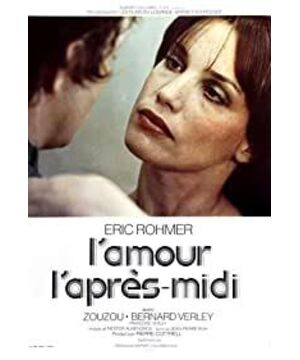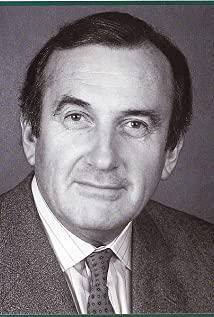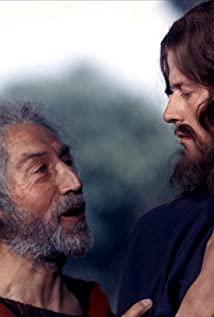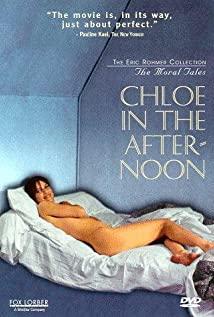It's interesting to see how a very self-reflective person can fall into temptation little by little. It's not just a variation of temptation: from "acquaintances" to inseparable acquaintances (I can't stand being alone, I need to see you; everything is going well with you), to when normal life begins to be invaded by temptation, to before the ultimate temptation of awakening.
The most basic level of Chloe's temptation is physical , and secondly, her life also satisfies the middle-class fantasies that follow the rules - driven by instinctive desires, casual, unstable/free life (the male protagonist goes shopping every afternoon, etc. Wait, under the "legitimate" reason that he hypnotized himself to "freely appreciate the opposite sex", it was actually a psychological hunt for beauty, a psychological derailment, and a "breath" in a regular life (of course, because he constantly Rationalizing his own life and behavior, so there is no ventilation in his own narrative, because ventilation means being repressed, and he will not admit that his life is repressed), which actually paved the way at the beginning. The deepest desire in the protagonist's heart), and again, Chloe's poor life and personal situation satisfy the fantasy of "heroes saving beauty" . Once again, Chloe, as the lover of a former friend, fulfills the "dream lover" fantasy in memory . In the end, Chloe completely placed himself in the position of a third party, and did not show any "arrogance", which might cause trouble to the male protagonist. This allows the male protagonist to interact with him with peace of mind and no burden, and thus fall into a little bit.
The first two times I watched this movie, I felt that Chloe was very skillful and held the male protagonist firmly. But this time I feel that she is also sincere and true to herself many times. She was originally a "casual" person, and her life was indeed like that - suddenly disappeared to go on vacation in Italy, and when she came back, she talked about her affairs vividly in the office, and if a general who returned home victoriously showed off his achievements ( "charm"). A woman who uses all means in her relationship will not have such behavior. Another example is that she couldn't find a job for a period of time after returning to China, and she was very depressed. After the male protagonist helped her find a job, she was in high spirits, chattering about interesting things in the clothing store. These are all unintentional actions. Perhaps her words and deeds violated many ethics and morals in our daily life. Therefore, in the hearts of the audience, her image naturally deviates from sincerity, thus becoming a "seducer" with means.
(In Rohmer's films, many of the most intimate moments are expressed in the form of "confessions" . Because of the characters in Rohmer's films, it is difficult to express pure desire completely without self-examination. And this also leads to the real language Rohmer's films become mysterious when they disappear . Like the moment when he touches his knee in the rain in "Kroll's Knee", and the final miracle moment in "Green Light")
Accurately showing that a middle-class with a strong sense of morality mixed with "liberalism" is a little bit seduced is the most powerful part of this film. Looking at the whole process from an overall perspective, it can be divided into the following stages: unfamiliar and alert, familiar and gradually let go of alert, friendship prevails and desire prevails, desire prevails, and awakening . If you look closely at the transformation of the male protagonist's self-censorship discourse , it is mainly manifested in the male protagonist's psychological confession in terms of audio-visual language . As the male protagonist falls into a little bit, the confession is gradually disappearing. From the large paragraphs of confession at the beginning, comparing his life and desires, to the last time the male protagonist looks at himself in his clothes in front of the sink, not only does he have no confession, but there is almost no noise in the whole film. This is the only moment in the whole film that escapes the cage of language weaving, and it becomes the quietest moment when the psychological activity is the most intense. (This also shows that Rohmer's use of voiceovers, and his understanding and use of language are both profound)
Secondly, from the perspective of screen space, the space where the male protagonist and Chloe interact can be divided into three categories: acquaintance space, possible acquaintance space and no acquaintance space . This division method, as the name implies, is divided according to the standard of whether there are acquaintances in the space (moral examination) . Acquaintance space, namely office; possible acquaintance space, including restaurants, streets, shops and other public spaces where acquaintances may appear; no acquaintance space, namely Chloe's apartment. The interaction between the male protagonist and Chloe started in the office. (Until Chloe came back from Italy, was very confident in her charm, and claimed to "seduce you", the office was the main space for the two of them to interact. This shows that the two, especially the male lead, are not afraid to put their dating activities on the spot. In the scrutiny of acquaintances, it shows that the male protagonist thinks (at least he thinks) that the relationship between the two is pure, and for the male protagonist, concealment means that he has unclean desires). The male protagonist is seduced, and the relationship between the two goes further. Some of them take place in a restaurant with possible acquaintances , and some occur in a more private space without acquaintances . The final temptation took place in Chloe's apartment.
Again, if you use the "means" of temptation to look at the male protagonist's fall into the process, first of all, in the unfamiliar stage, that is, the two people are still unfamiliar (from the beginning until the first time they have dinner together), the male protagonist is still very defensive. Strong, unwilling to help Chloe for fear of trouble. At this time, in addition to showing goodwill, what Chloe did most importantly said that she was in a bad situation, in order to get the sympathy of the male protagonist. The second is the stage where the two gradually become friends , starting from the first meal together and ending with the male protagonist accompanying Chloe to see the house . At this time, Chloe's way is to continue to express kindness (send doll clothes), confession (tell about the past, the current situation), and the male protagonist also begins to talk about his life. The third stage begins with the stage of looking at the apartment when "desire" first appears (the man's smile after the landlord misunderstands). After looking at the house, the two ate at the restaurant. Chloe said, "I can't stand being alone, I need you" and "You" Everything is going well." It can be said that it is a strong hint , but it does not directly say whether you like it or not. She took the initiative to hold the man's hand. And when the male protagonist wanted to "naturally" kiss her hand, she pulled her hand away. Chloe's confession is more personal (talking about his desire to commit suicide), and the words they communicated involve a deeper outlook on life and values . At this stage, the male protagonist's self-censorship is still there, such as the monologue in the taxi after he helped Chloe move the house. The fourth stage begins when Chloe disappears for the first time, and finally wakes up in front of the mirror, when desire gradually overwhelms friendship and "morality" . During this phase, Chloe's two disappearances, which has brought the intimacy of the relationship between the two to a higher level. After disappearing for the first time and returning to the office, the male protagonist's behavior is very intimate. Afterwards, Chloe and the male protagonist went out to eat together many times. After disappearing for the second time and returning to the office, the male protagonist was even more unable to restrain his desires. He began to go shopping with Chloe, behaved like a lover on the street, and then stayed alone in a private space with Chloe. In the fourth stage, the conflict between marriage morality and desire becomes more and more intense, and it also manifests itself in the most Rohmer way—the confrontation of two people's views. (In Rohmer's film, the content of character communication reflects the relationship between characters. The most typical example is Gaspar and Margot's walk and chat on the beach in "A Summer's Tale".)
(One of the scenes is very interesting. After two people buy clothes, they look in the mirror in the stairwell. The male protagonist says, "Chloe, will you marry me?" A subtle push was used to make the real two people in the picture come out of the painting, leaving only the image in the mirror. After the two walked out of the fantasy, "impossible", the two walked down the stairs and returned to the picture )As shown below:
In this shot, mirroring is used to express the switch between reality and fantasy.
View more about Love in the Afternoon reviews











